Not knowing how to manage your finances can often stem from a simple misunderstanding of financial topics. This might lead to increased and unnecessary levels of stress. In fact, over 53% of Americans feel anxiety when thinking about their finances, according to a financial study by the Financial Industry Regulatory Authority, also known as FINRA.
So, how can we change this trend? Well, if you know how something works, it boosts your confidence. Consider the role that financial literacy plays in your everyday life when making financial decisions. Knowing and understanding different financial terms could help you make more informed decisions about money, credit products, and more.
To get started with improving your financial literacy, learn and review these 16 terms.
Annual Percentage Rate (APR)
Called APR for short, the annual percentage rate represents the total annual cost you pay when borrowing money from a lender. You might confuse APR with interest rate because of their similarities, but these two terms have different meanings. An APR includes the interest rate plus any fees you might have to pay, whereas the interest rate is only the percentage of interest a lender charges on a particular loan.
Annual Percentage Yield (APY)
Annual percentage yield, or APY, represents how much interest you can earn on an interest-bearing account, such as a savings account or certificate of deposit, over the course of a year. APY calculations don’t typically include potential withdrawals or additional deposits, but they often include your interest rate and the rate of compounding interest (interest you earn on interest).
Budget
A budget is a plan for projecting and tracking your spending and income over a certain period of time. The period depends on you. There are yearly, monthly, weekly, and daily budgets, in additional to other types of budgets. You typically want to start and stick to a budget so you can learn and practice how to save money, which could help you reach your financial goals.
Credit
Credit is a tool used to borrow money from a lender. Credit is your history of how you repay loans. Credit is neither money nor a loan but your reputation for dealing with loans. It is often associated with credit cards and loans, including personal loans, mortgages, car loans, and more. Building credit by using loans responsibly could open up helpful financial opportunities for you down the road, including lower interest rates and better terms from lenders and creditors.
Credit Bureau
Credit bureaus, sometimes called credit reporting agencies, collect information about your credit history and put it together to form your credit report. The three major credit bureaus include Equifax, Experian, and TransUnion.
Many lenders and financial institutions use the information provided by these credit reporting agencies to determine the risk involved with lending you money. Although certain lenders use all three credit bureaus, some may only use one or two of them to determine your credit worthiness.
Credit Counseling
Credit counseling services can help if you need guidance in your financial situation. This often includes budget counseling, debt management plans, student loan counseling, bankruptcy counseling, and credit report reviews. You might consider contacting a credit counseling service if you have credit card debt or other financial worries and need help with solutions.
Credit Report
Your credit report shows all the information related to your credit, which includes opened and closed credit accounts and their associated information, such as payment history, account balances, and credit limits.
Credit reports are also known as credit files, credit records, and credit histories.
Your credit report also includes your personal information, any collection accounts, and public records that include bankruptcies. You can request free credit reports from the three major credit bureaus at www.annualcreditreport.com.
Credit Score
Your credit score represents to lenders the likelihood that you will pay back any money you borrow. Your credit score is calculated through mathematical formulas, or scoring models. Multiple types of scoring models exist, including the FICO score and VantageScore. Most lenders use FICO score as their go-to option.
Credit scores are sometimes referred to as credit ratings or, less commonly, credit grades. A credit score is typically considered “good” when it is in the range of 670-739.
Creditor
A creditor is an individual or business that makes loans to others. More commonly known as lenders, creditors can be a bank, credit union, mortgage lender, collection company, and even a medical office or hospital.
Debt
Your debt represents the amount of money you owe someone else, including people, companies, or organizations. Common ways to get into debt include credit cards and loans, typically because most people can qualify for some version of these products, and you can easily use them. This doesn’t mean you should avoid credit products at all costs, but you should take care not to rack up unnecessary debt.
There are two main types of debt. These are referred to as secured debt and unsecured debt. Secured debt is debt that has collateral attached to it (such as a house in a mortgage loan or a car in a car loan). Unsecured debt on the other hand has no collateral attached to it (for example credit cards and personal loans), meaning there is no asset attached to the loan to secure the debt in case of default.
Debt Management Plan (DMP)
Debt management plans and programs (also known as DMPs) can help you reduce interest rates and get out of debt. Part of the process could include ending collection efforts, lowering your debt payments, or reducing interest rates. Credit counseling agencies often implement debt management plans for clients who need guidance on starting a budget and simplifying existing debt. You have the option to manage your own debt as well, but you might prefer seeking professional help from a nonprofit agency.
Through a DMP, the agency typically negotiates better interest rates with your current creditors, which in turn lowers your monthly payment(s). Debt management plans typically range in time between 3 and 5 years.
Debtor
A debtor is someone who owes a debt to another individual or company.
Emergency Fund
An emergency fund helps you have money in case of an unexpected event. This typically differs from a rainy-day fund because you often want more money in an emergency fund. A rainy-day fund could help if you get a flat tire or need to fix something around the house. But an emergency fund could help if you lose your job or have a medical emergency. Both types of funds can help when you need them, and they’re both important to have. You can find lots of budgeting tools online to help you build an emergency fund.
Income
Your income represents the amount of money you make from all sources, including your job, freelance work, side hustles, and more. Income can be categorized into gross income (what your employer and the government say you make) and net income (your paycheck). If you have a $50,000 salary and no other income, your gross income is $50,000. Net income might also be called your take-home pay. It’s what you make after taxes, retirement contributions, health insurance premiums, and any other deductions from your paycheck.
Interest
Interest is the amount of money lenders charge you for borrowing money, typically portrayed as a percentage. For example, most credit cards have interest rates. The average credit card interest rate ranges around 15% to 16%, according to the Federal Reserve.
If you use a credit card and don’t pay back the money you owe, your balance will start to accrue interest. You would then have to pay back the original amount owed plus any interest it accrues. If you have a large balance, you might have difficulty paying off your debt because of high interest rates.
On the other hand, interest can also be beneficial. If you have a savings account or similar financial product, you can make money from accrued interest. In this case, interest works for you instead of locking you into debt.
Final thoughts
Improving your financial literacy can help you improve your financial circumstances. Once you know what a financial term means and how it could affect your situation, you can implement this knowledge and work toward achieving your financial goals. For example, if you want to get out of debt, it makes sense to learn what budgeting means and how it can help you.
Over time, you will see how financial terms are interconnected. But remember to take your time and learn at your own pace.
About the Author
Ben Walker is a personal finance writer at FinanceBuzz who loves helping others make informed and financially sound decisions. He does this by explaining key principles involving credit cards, budgeting, banking, insurance, investing, and more.
About the Author
Rick has been in the financial and credit counseling industry for over 20 years. He is currently a HUD certified housing counselor and has well over a decade of experience as a certified credit counselor. Rick writes regularly on matters relating to consumer finances and is a contributor for many publications on these topics.











